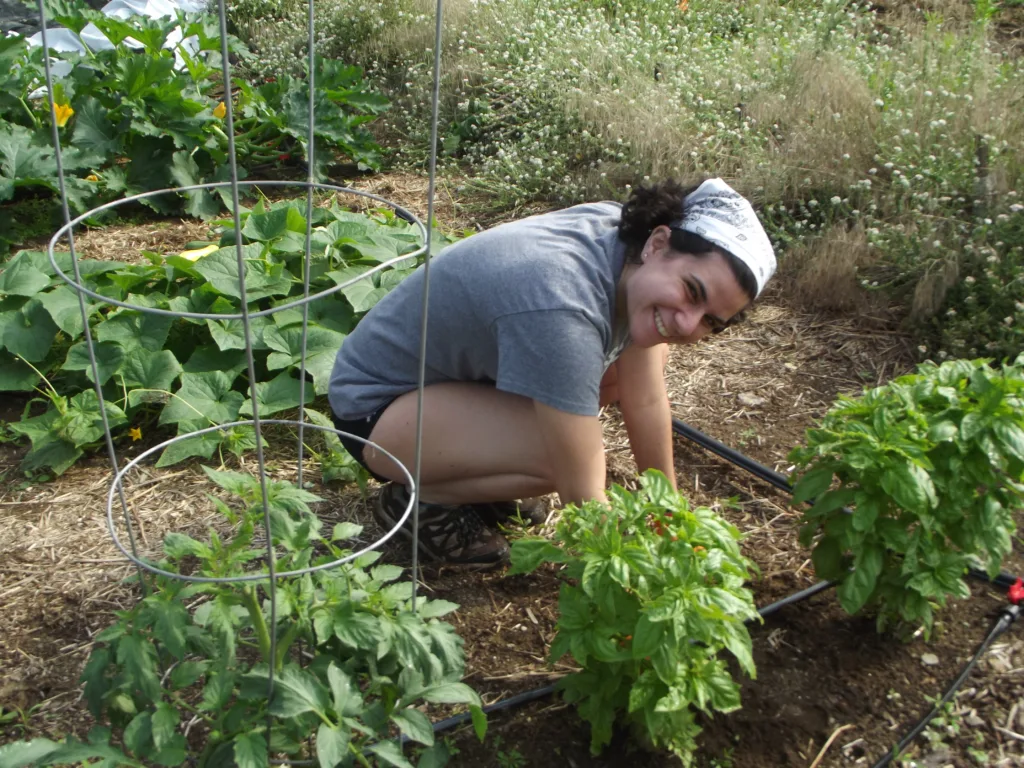What is Tu B’Shvat?

It’s cold, it’s snowing, the trees are bare… in many parts of the world, that is. But in Israel, the earliest flowers are starting to bloom and it’s time to celebrate a Jewish holiday called Tu B’Shvat. Tu B’Shvat celebrates the Jewish people’s indigenous connection to the land of Israel through marking the beginning of the agricultural year in Israel and uplifting Israel’s seven native species, among other practices.
The name of this festival is actually its date: “Tu” is a pronunciation of the Hebrew letters that represent the number 15, and it falls in the Hebrew month of Shvat. Throughout history, Tu B’Shvat has taken on different meanings for the Jewish people in Israel and across the world.
Where do Tu B’Shvat Rituals and Celebrations Come From?
By the early modern period (16th century), rabbinic scholars in the city of Tzfat had developed a Tu B’Shvat meal similar to a Passover seder. This seder celebrated the seven native species of Israel: pomegranates, olives, dates, figs, grapes, wheat, and barley.
According to Kabbalah (Jewish mysticism), all living beings hide within them a spark of divine presence. Similarly, fruits, nuts, and grains hide within them seeds of new life and potential growth. Human actions can release these sparks and help increase God’s presence in the world. On Tu B’Shvat, the Kabbalists would eat certain fruits associated with the land of Israel as a symbolic way of releasing these divine sparks.
Tu B’Shvat rituals grew and changed over time. By the late 19th century, early tree-planting Zionists used Tu B’Shvat as an opportunity to celebrate their agricultural work of “making the desert bloom” in Israel. Today, planting trees in and out of Israel is one way of celebrating Tu B’Shvat.
An important part of Jewish consciousness is rooted in environmentalism and ecological activism. Many people think about Tu B’Shvat as an ancient Jewish Earth Day and spend the holiday learning about the Jewish tradition of environmental advocacy and volunteering for efforts connected to the land and sustainability.
Ways to Celebrate Tu B’Shvat This Year:
- Host a Tu B’Shvat Seder, a ritual meal that celebrates different aspects of the holiday! You can find everything you’ll need in this resource from Hillel International.
- Participate in a beach or park cleanup. Tu B’Shvat is the perfect invitation to get your hands dirty by caring for our planet.
- Plant some seeds (indoors or outside depending on where you live) and watch them grow! Consider planting a Passover herb garden with parsley, dill, scallions, and other herbs you can use in your seder (Passover is only three months away!).
- Go to the grocery store and purchase some fruits or vegetables you’ve never tried before. Host a tasting for friends to determine which bite is the best.
- Make a donation to a local environmental organization, or volunteer your time to support their work in keeping your community healthy.
- Hang with some trees. If it’s warm enough where you live, enjoy some reading or snacking beneath the shade. If you live in a colder climate, take a brisk walk in a wooded area and enjoy the beauty of snow-covered trees.
Tu B’Shvat Resources:
- We Are All Trees: A Tu B’Shevat Seder by and for the Hillel Community: A guide to creating your own Tu B’Shvat Seder from Hillel International’s Center for Jewish and Israel Education & Meyerhoff Center for Jewish Experience.
- What Even IS Tu B’Shevat? A Quick Explainer: Learn more about Tu B’Shvat using this resource, created by Hillel International.
- Celebrate Tu B’Shvat With Your Hillel!: A guide to Tu B’Shvat created by the Hillel International Student Cabinet for students looking to organize sustainability programs at their Hillel in honor of Tu B’Shvat.
- Tu B’Shvat Program Guide: Learn more about creating a Tu B’Shvat Seder and other Tu B’Shvat programs with this guide from student leaders involved with Hillel International partner Adamah on Campus.